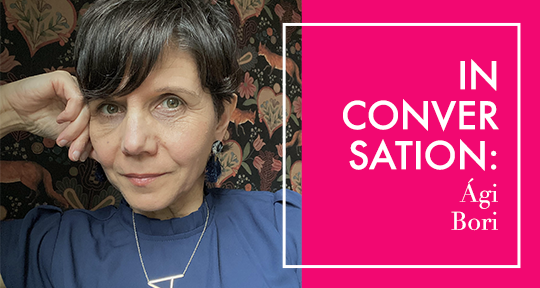Translated by Samuel Bollier, Jurj Salem’s “At the Circus” is a discombobulatingly charming, disarmingly hair-raising tale that elides joy and frustration, obfuscates reality and performance, and makes irony sincere. Things are not what they seem, which renders Bollier’s excellent translation of Salem’s easygoing prose all the more stirring; there, suited in the circus, we must imagine S. happy.
I’ve had the chance to read Quyên Nguyễn-Hoàng’s breathstopping beautiful self-translations in The Margins before; these two pieces in the new issue exude that same intrinsic conscience of precarious simultaneity, numbered and reversed, punctuated with “+” signs, a “delirious net of ten thousand dewdreams.” Quyên Nguyễn-Hoàng’s wordly creations turn from imagistic manifestation into pure interpretation.
Samuel’s parodic brilliance in his essay “Poets of Mirror Hatred” yields real laughter in an entirely serious, paradoxically internal essay about the division between the social and the cultural in poetic personas. What language exists for that which must not be expressed, at all costs, lest the self split? How must the reader read repression? Linking Kafka to two generations of modern Korean poetry, Samuel ends by critiquing the bright, hegemonic Asian American discourse of pain, transformed by their loudness into white noise: “To want more representation of Asian-American faces in American literature is to dream of your own cage.”
When Brandon Breen translates that “writing is obliquitous, but also ubiquitous,” I return to Ubah Cristana Ali Farah’s original contrast, “obliqua” versus “ubiqua,” in “The House of Termites,” a juxtaposition that encapsulates the attractions of Ali Farah’s style. By obliquely rebounding between various writers of exile, from Baldwin to Said to Kristeva, Mernissi, and Zambrano, Ali Farah’s essay makes a sensual ubiquity of this obliquitous displacement. To misappropriate Baldwin, you need strength to live in the “house of termites”; another kind of strength to let the termites get at it. Both strengths inhabit this essay.
Zhou Junyi’s conversation with filmmaker Tan Pin Pin crystallizes a certain vision of Singapore: a prism of public languages, spaces, and systems that shift as the microwave’s glass plate spins. I particularly love how the interview conveys the sounds of Singapore, and how we intellectualize it through subtitular structures, and formal and editorial decisions. Tan’s work lies in the instant before the intellectualization: “People will always know when a guest of honor arrives, but they don’t know what it feels like before the guest of honor arrives or even question why we have a guest of honor in the first place.”
—Michelle Chan Schmidt, Senior Assistant Editor READ MORE…




